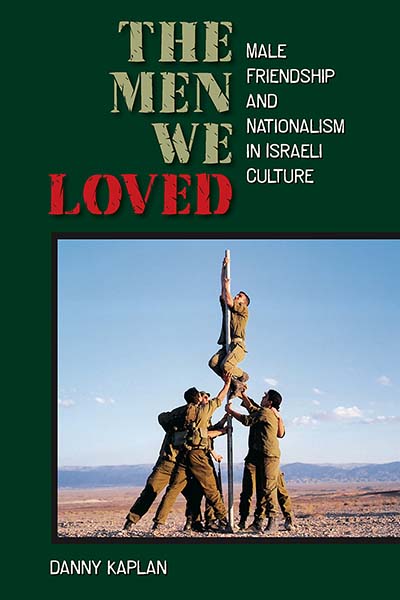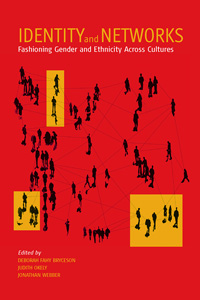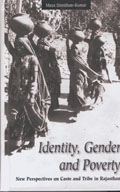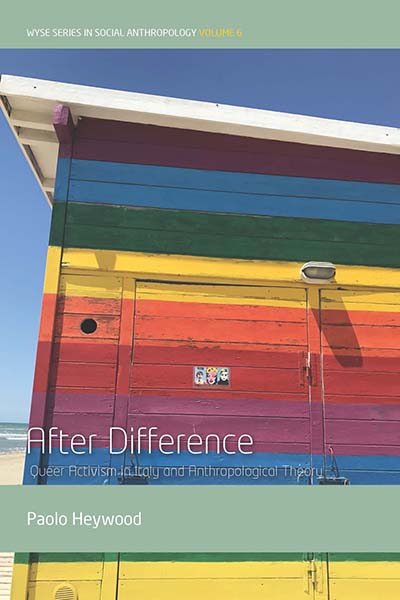
Email Newsletters
Sign up for our email newsletters to get customized updates on new Berghahn publications.
The Men We Loved
Male Friendship and Nationalism in Israeli Culture
Danny Kaplan
190 pages, bibliog., index
ISBN 978-1-84545-192-9 $135.00/£104.00 / Hb / Published (November 2006)
ISBN 978-1-84545-193-6 $24.95/£19.95 / Pb / Published (November 2006)
eISBN 978-1-78238-937-8 eBook
Reviews
“Kaplan skillfully relates the personal and collective story of male friendship, and critically points to the metonymic link between narratives of combat fraternity and Zionism as a gendered project... Tales of combat fraternity constitute a mythological universe of re'ut that challenges the demise of the priave body as it breathes new life into the body politic... Kaplan puts forth the most systematic analysis in Israeli sociology to date of what he calls "collective necrophilia," namely, the national cult of death... A major achievement in both masculinity and Israel studies, which places the Gordian knot between Eros, Thanatos, and nationalist commemoration at the center of public debate and academic discourse.” · Israel Journal of Sociology
“…the book offers a clear and well written account of present-day Israeli male friendships...The chief strength of the book lies in Kaplan’s deep and expansive knowledge of Israeli culture. The author delivers a perceptive and provocative account of Israeli Culture’s obsession with death and commemoration. He does it through an intimate familiarity with Israeli songs and poems, folklore, tradition, cultural heroes, and most of all the Hebrew language…The book presents a rich and erudite analysis of linguistic patters and concepts.” · Man and Masculinities
“The quoted words of the interviewed men are powerful narratives that forcefully illustrate the interrelationship between the power of culture, history, and national identity and the way men enact their interpersonal relationships. We can feel the emotions in the Israeli men’s words and see for ourselves that men ‘do friendship’ in a variety of complex ways that incorporate dominant masculinity, homosocial desire, and national identity. This is a short but compact … that contributes new insights and ways of thinking about men’s friendships and how the personal and the political are often intertwined.” · Shofar
"This is an excellent book. The argument is based on clear theoretical options and the research is conveyed to the reader through a very good use of ethnographic material. Furthermore, this work simultaneously addresses issues of nationalism and gender/masculinity, allowing for a richer understanding of each. Finally friendship is recovered as a dignified object of study in the social sciences". · Miguel Vale de Almeida
"Against conventional popular and academic views, the author interprets friendship as a unique social form bordering the personal and political, the intimate and the collective, and the secular and the sacred. This fascinating and original volume argues for the central symbolic role of male friendships in constructing an Israeli national identity. This important book deserves a wide audience". · Steven Seidman, SUNY University at Albany
"Danny Kaplan's eye-opening interviews with both young Israeli male soldiers and older male veterans reveal personal emotions and nationalist ideology in a continuous, intricate dance with each other. [It] reveals how intimate are the actual dynamics that sustain the exclusionary, masculinized notions of citizenship". · Cynthia Enloe, author of "The Curious Feminist: Searching for Women in a New Age of Empire"
Description
Some semi-public, exclusive male settings, most noticeably in the military, encourage the production of intimacy and desire. Yet whereas in most instances this desire is displaced through humor and aggressive gestures, it becomes acknowledged and outright declared once associated with sites of heroic death. In his provocative study of interrelations between friendship in everyday life and national sentiments in Israel, the author follows selected stories of friendship ranging over early childhood, school, the workplace, and some unique war experiences. He explores the symbolism of friendship in rituals for the fallen soldiers, the commemoration of Prime Minister Yzhak Rabin, and the national infatuation with recovering bodies of missing soldiers. He concludes that the Israeli case offers an extreme instance of a much broader cultural phenomenon: declaring the friendship for the dead epitomizes the political “blood pact” between men, taking precedence over the traditional blood ties of kinship and heterosexual unions. The book underscores nationalism as a homosocial-based emotion of commemorative desire.
Danny Kaplan is a research fellow at the Horowitz Institute on Society and Economy at Tel Aviv University and teaches at Bar Ilan University and Tel Aviv-Yafo Academic College. He specializes in the anthropology of friendship, military masculinity, sexuality, and the sociology of emotions. He is the author of Brothers and Others in Arms: The Making of Love and War in Israeli Combat Units (Haworth Press 2003).




